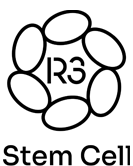Lymphoma Treatment
NK Cell Therapy for Lymphoma Treatment in Mexico & Pakistan
Natural Killer (NK) cell therapy is an emerging and promising approach for the treatment of lymphomas, a group of blood cancers originating from lymphocytes (a type of white blood cell). NK cells are part of the innate immune system and can target and kill cancer cells without prior sensitization, making them a valuable tool in immunotherapy.
R3 Stem Cell offers natural killer cell immunotherapy in both Mexico and Pakistan for lymphomas with both autologous NK cells and allogeneic (donor) as well.
How NK Cell Therapy Works
NK cells naturally recognize and destroy tumor cells by:
- Detecting Reduced MHC Class I Expression: Many cancer cells, including lymphoma cells, downregulate MHC class I to evade T-cell-mediated immunity. NK cells are activated in response to this change.
- Engaging Activating Receptors: NK cells recognize stress-induced ligands on tumor cells through activating receptors (e.g., NKG2D, DNAM-1).
- Cytotoxic Mechanisms: NK cells kill tumor cells using perforin, granzymes, and antibody-dependent cellular cytotoxicity (ADCC) via Fc receptors (e.g., CD16).
Types of NK Cell Therapies for Lymphoma
Autologous NK Cell Therapy – R3 offers this in Pakistan
NK cells are harvested from the patient's blood, expanded, and activated in the lab, then reinfused into the patient.
Advantage: No risk of graft-versus-host disease (GvHD).
Limitation: Patient's NK cells may be dysfunctional due to the cancer or prior treatments.
Autologous NK Cell Therapy – R3 offers this in Pakistan
NK cells are harvested from the patient's blood, expanded, and activated in the lab, then reinfused into the patient.
Advantage: No risk of graft-versus-host disease (GvHD).
Limitation: Patient's NK cells may be dysfunctional due to the cancer or prior treatments.
Allogeneic NK Cell Therapy – R3 offers this in Tijuana Mexico
NK cells are obtained from a healthy donor.
Advantage: Higher cytotoxicity if the donor's NK cells are functionally superior.
Limitation: Potential immune rejection or reduced persistence in the patient.
Engineered NK Cells – R3 does not offer this due to safety concerns.
NK cells are genetically modified to enhance their anti-tumor activity. Common modifications include:
- Chimeric Antigen Receptor (CAR-NK) Cells: Engineered to target specific lymphoma antigens (e.g., CD19, CD20).
- Cytokine-Induced NK Cells: Engineered to express cytokines like IL-15 for enhanced survival and proliferation.
Induced Pluripotent Stem Cell (iPSC)-Derived NK Cells – R3 does not offer this, as safety is not assured yet on these treatments.
NK Cell Lines
Combination Therapies
Autologous NK Cell Therapy – R3 offers this in Pakistan
- Monoclonal Antibodies: NK cells can work synergistically with monoclonal antibodies like rituximab (anti-CD20) or obinutuzumab, enhancing ADCC against lymphoma cells.
- Cytokine Support: IL-2 or IL-15 administration enhances NK cell survival, proliferation, and activity.
- Checkpoint Inhibitors: Blocking inhibitory receptors (e.g., NKG2A, PD-1) enhances NK cell activity.
Clinical Applications
NK cell therapy has shown promise in treating various types of lymphoma, including:
- Diffuse Large B-cell Lymphoma (DLBCL): CAR-NK cells targeting CD19 have shown efficacy.
- Follicular Lymphoma: NK cells combined with monoclonal antibodies like rituximab.
- T-cell Lymphomas: NK cells can target tumor cells resistant to T-cell-based therapies.
Advantages of NK Cell Therapy
- No GvHD Risk: NK cells lack the potential to cause graft-versus-host disease, unlike T cells.
- Broad Targeting: Can eliminate tumor cells without MHC restriction.
- Rapid Response: NK cells act quickly upon infusion.
Challenges and Limitations
- Persistence: NK cells have a short lifespan in the body, necessitating repeated infusions.
- Tumor Microenvironment: Immunosuppressive factors in the lymphoma microenvironment can dampen NK cell activity.
- Expansion and Activation: Large-scale production and maintaining activated NK cells ex vivo are technically challenging.
- Immune Evasion: Lymphoma cells may develop mechanisms to escape NK cell detection, such as shedding stress ligands.
Current Status
Early results of clinical trials with NK Cells for lymphoma indicate potential benefits, especially when combined with other immunotherapies or genetic engineering.
If you would like to see if you are a candidate for NK Cell treatment for lymphoma, contact us today at +1 (844) 4NK-CELL.
NK Cell Therapy Is Available In Tijuana MX and Islamabad, Pakistan
